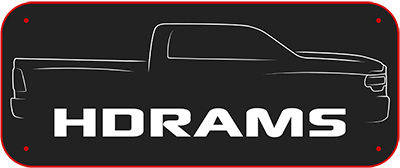A lease is always the most expensive way to buy a car long term. It’s just a way to get a lower payment so a person can buy a car they want, but can’t afford.
A turned in leased vehicle is many times a truck to buy. Let someone else take all that depreciation, although HD trucks do seem to hold their value better than most vehicles.
I slightly disagree. A lease, if the plan is to convert to a buy, is often a bad deal. But... Lets say you are a buy a new car ever 2 years kind of guy. So you go look at a new RAM 1500 for $45K, you price it out as a 12K miles per year lease and as a flat out buy and see a lease payment of $600 and a buy payment of $850.
In 2 years on that lease, you know you walk away with nothing additional lost at worst. If you under mile the truck and/or maintain it like a champ.... you may get a couple dealers who want to buy it out at the end of the lease. I actually just did this and got $6,000 to turn my 2017 Rebel Mojave Sand edition in. So I saved about $250 a month in payment, hauled my Jeep, Kubota and camper for 2 years, and got $6000 applied to my purchase of a 2019 RAM 2500.
Now on the RAM 2500/3500 a lease does not work out the same. The reason as explained to me is that the lease company assumes that a leased HD truck is going to go to work and come back looking somewhat thrashed. So a lease payment is likley HIGHER than a buy payment! And quite often by a large amount.
If you leverage a lease (this includes paying "rent") and stack a buy loan to it after the lease ends..... you can allow yourself to pay interest for 9 years on a truck. Depending on your financing options (your credit score) you may buy a $50K truck that you pay $100,000+ for at the end of a bad lease and bad buy financing deal since you can spread that rent and interest out over a 3 year lease plus a 5 or even 6 year loan. Imagine.... 9 years of financing and massive interest on a rusted truck, far out of warranty and with mechanical issues. Your upside-down almost the entire time, you can not easily get out from under this loan and you hate your life.
A Lease is for a person who wants to jump in and back out cleanly in short time and repeat this over and over. Even at that you need to do the math and look at the lease deal. What is the buyout price? Do you think you can have equity at the end based on that contracted buy out? Is it cheaper to buy with current incentives? Cheaper to lease? Can you live within the miles and can you maintain the condition of the vehicle so that a lease is even an option? It is not as cut and dry as the monthly payment. You need to consider your specific deals and your situation. And you need to be honest to yourself.
